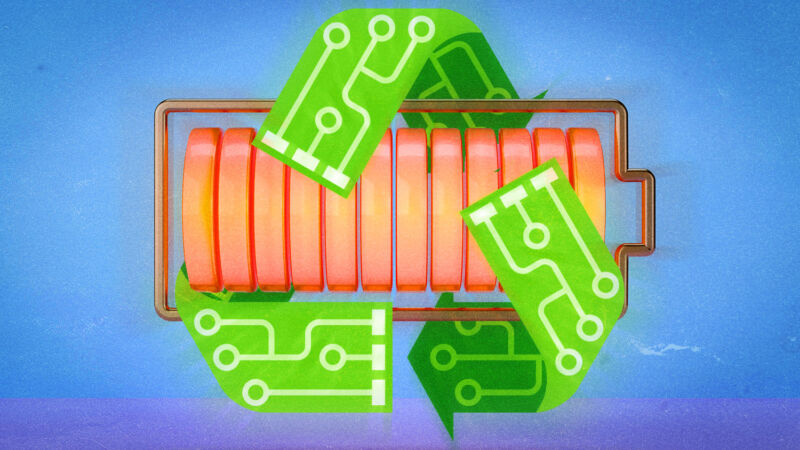Using recycled cathodes makes better lithium batteries, study finds

Enlarge (credit: Aurich Lawson | Getty Images)
The problem of what to do with old batteries comes up in many discussions about the pros and cons of electric cars. Most people's first preference is to reuse them, repurposing the cells for a second life as stationary storage.
But at some point, even those batteries will reach their end of life, and recycling them makes sense, given concerns over sourcing raw materials for fresh batteries to take their place. It's even possible that using recycled materials might make a better battery, according to a study published in the journal Joule.
Recycling a complicated construction like a battery cell is a difficult task, but it's a potentially lucrative one, which means it's of interest to academia and industry. The study in Joule, led by Professor Yan Wang at Worcester Polytechnic Institute, looks at the performance of lithium-ion cells that have cathodes made from nickel, manganese, and cobalt recovered from other cells.
Read 8 remaining paragraphs | Comments